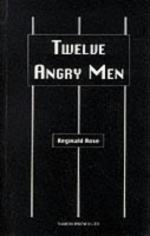
|
| Name: _________________________ | Period: ___________________ |
This quiz consists of 5 multiple choice and 5 short answer questions through Act I.
Multiple Choice Questions
1. Apart from the action of the dissenting juror in Act 1, what other contributions from a juror suggest there is at least one other juror willing to stand up against the behavior of others?
(a) Juror Six says America is a free country.
(b) The foreman orders the jurors to be orderly.
(c) Juror One says people are free to disagree.
(d) A juror rebukes Juror Ten for his racist comment.
2. In the beginning of the deliberations, how do most of the jurors demonstrate a lack of seriousness about their role as jurors?
(a) They are concerned about how the trial has kept them from attending to their own interests.
(b) They are casual in their discussions.
(c) They do not pay attention to the details.
(d) They read the newspaper.
3. Why is it clear from the dissenting juror's action that anyone could have had a weapon similar to the murder weapon?
(a) He purchased it for $10 from a hunting shop nearby.
(b) He purchased it for $2.00 from a shop near the defendant's house.
(c) He borrowed it from a policeman who said they confiscate them from schoolboys all the time.
(d) He found it on the street.
4. Why do the jurors take a vote before discussing the evidence?
(a) To get an early indication of where they stand on the verdict
(b) The judge instructs them to do so.
(c) So they can leave quickly.
(d) The verdict is obvious.
5. Which of the jurors comment that they all had difficult lives, so a difficult life should not explain the defendant's history of violence?
(a) 3, 4, 11 and 12.
(b) 4, 7, 3 and 11.
(c) 6,7,1 and 3.
(d) 3, 6, 9 and 12.
Short Answer Questions
1. After eleven jurors vote "guilty" and one juror votes "not guilty", what process do the jurors decide on in order to resolve the matter?
2. What is the reaction of the jury when the dissenting juror discredits the allegation that the weapon is unique?
3. How does the dissenting juror feel about the job done by the lawyer for the defendant?
4. Based on the impact of their testimony on the jury, who are the two most important witnesses?
5. According to one of the witnesses, what was the defendant alleged to have shouted out to his father on the night of the murder?
|
This section contains 543 words (approx. 2 pages at 300 words per page) |

|




